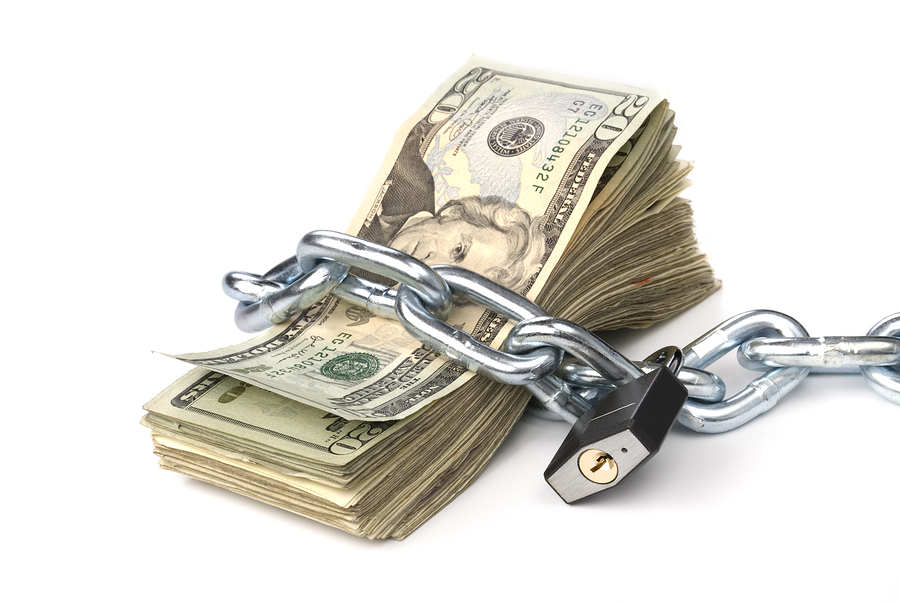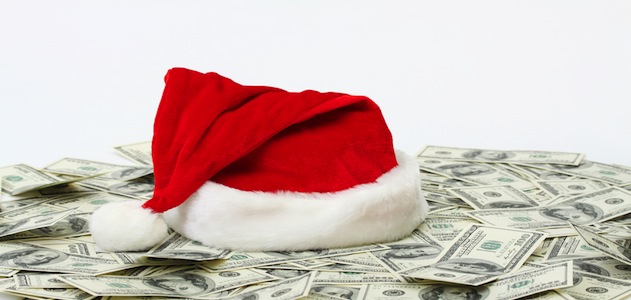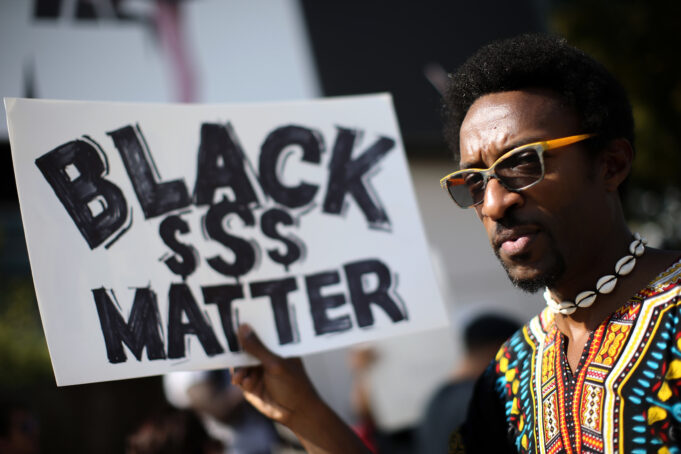From Covid-19 to social justice protests, 2020 has been an unprecedented year. As the holiday season approaches, companies have prepared sales, deals and discounts for in-person and online shoppers. According to the National Retail Federation, 42 percent of holiday shoppers have started their holiday shopping earlier than they usually do.
But Covid-19 has left many companies in a bad place financially. On top of the already “retail apocalypse” that has been happening within the last decade, over 150 major companies have filed for bankruptcy since the start of the virus. Those companies include J. Crew, Neiman Marcus, Gold’s Gym, JCPenny, Hertz, California’s Pizza Kitchen and Ruby Tuesday.
According to a report by NerdWallet, 40 percent of holiday shoppers say they plan to spend less this year due to the pandemic, and 65 percent say the pandemic will impact the way they plan to give gifts this year. Close to 40 million Americans are still suffering from debt from last year’s holiday season.
Candace Miller, a Postdoctoral Fellow at the Center for Research on Race and Ethnicity at Indiana University, told The Final Call that businesses are shifting online due to Covid-19, but many people may not be able to shop online.
“Some of the bigger issues are that people have lost jobs, A lot of people have not been able to return to work. Unfortunately, many of those who have been able to continue to work have been represented in a lot of low-wage labor,” she said. “A large share of what we have called essential workers are people who work in, unfortunately, the low-wage service industry, and so these are people that we know have difficulties engaging in consumerism during the holiday season in general because they are in low-wage work.”

She said Black businesses may struggle during the holiday season because of the historical and contemporary lack of access to capital. As businesses shift online, Black businesses may not have the resources for elements of online shopping like shipping and delivery. She urged people to plan ahead in supporting Black businesses for the holiday season, but also to be patient with them as they navigate new terrain that Covid-19 has introduced. The pandemic which has disproportionately impacted Blacks and Latinos and has caused economic woes during a time of year that focus could be directed toward other areas, some observers note.
This holiday season marks five years from the launch of the, “Up With Jesus, Down With Santa” initiative, which was a call by the Honorable Minister Louis Farrakhan of the Nation of Islam for Black people to boycott holiday spending.
“The Honorable Minister Louis Farrakhan asked us to do a boycott back during 2015 so that we might use the power of our dollar to make a statement regarding the absence of justice towards the Black community,” said Student Minister Demetric Muhammad, an author, student minister and member of the Nation of Islam’s Research Department.
He said the holiday season revolves around capitalism, conspicuous consumption and merchants increasing in money while the poor remain poor. “If there was a shifting of the focus to Jesus and justice and righteousness, it could be a productive season, but to the degree that Jesus is pushed to the side and Santa is elevated, then this is something that our community should acknowledge and absent ourselves from,” he said.
As part of the Justice or Else movement in 2015, Minister Farrakhan echoed the words of Dr. Martin Luther King, Jr. from his April 3, 1968 speech delivered in Memphis a day before he was assassinated.

“We don’t have to argue with anybody. We don’t have to curse and go around acting bad with our words. We don’t need any bricks and bottles. We don’t need any Molotov cocktails,” Dr. King said. “We just need to go around to these stores, and to these massive industries in our country, and say, ‘God sent us by here, to say to you that you’re not treating his children right. And we’ve come by here to ask you to make the first item on your agenda fair treatment, where God’s children are concerned. Now, if you are not prepared to do that, we do have an agenda that we must follow. And our agenda calls for withdrawing economic support from you,’ ” the civil rights stalwart said.
He continued: “And so, as a result of this, we are asking you tonight, to go out and tell your neighbors not to buy Coca-Cola in Memphis. Go by and tell them not to buy Sealtest milk. Tell them not to buy … Wonder Bread. … Tell them not to buy Hart’s bread. As Jesse Jackson has said, up to now, only the garbage men have been feeling pain; now we must kind of redistribute the pain,” said Dr. King.
“It’s interesting, we always remember him from the (1963) MLK who said ‘I have a dream’ and not the ‘68 one who said economic withdrawal, economic protest, stop buying Coca-Cola, stop buying whoever,” said Calvin Martyr, who created The Blackout Coalition. “We’re going to stop giving our financial support to these companies with their unfair hiring processes.”
He created the organization as a response to the death of Ahmaud Arbery, who was shot and killed by two White men in Glynn County, Georgia, in February of this year.
“I was in deep meditation, because I had just seen the video of Ahmaud Arbery. Just the carelessness, the senselessness, the total disregard for human life. It just touched me in such a way,” he said.
Since May 8, he has been calling on Black people to do a blackout, which includes economic withdrawal and buying from Black-owned businesses. He is currently doing a campaign, #BuyBlackGiveBlack, aimed at intentionally attacking the Black Friday season.
Dr. Boyce Watkins told The Final Call that this clarion call to boycott the holiday season has been around for a long time. “I feel like each year we get a little bit better at loving ourselves financially. And I think Covid actually is a great opportunity for us to break old habits. We give a lot of wealth away to White people on a regular basis. Most of us work for a White person. We send our children to schools run by other people,” said the businessman, entrepreneur and finance professor.
“Sometimes it takes a disruption like this to help us change old habits, so that we can actually form better and new habits after the fact,” noted Dr. Watkins.
He said it’s important for Black people to be financially conscious due to Covid-19 affecting the Black community not only physically, but economically.
“It’s very important that we be financially conscious this winter as we decide what to do with our resources, where we choose to spend our money, who we choose to hire, how we choose to invest and support each other,” he said.
Cassiopeia Uhuru, CEO of TheBlackMall.com, is approaching the 6th annual Buy Black Weekend. Starting November 27, the event will include Buy Black Friday, Black Business Saturday, the 4th annual The Black Mall Awards, which will honor the best in Black business, and Black Monday.
All of the events will be virtual due to Covid. Ms. Uhuru said they will feature 25 vendors on November 27, 20 business owners on November 28 and 30 vendors on the website for people to get deals on November 30.
“Black people spend $1.3 trillion per year. That’s our spending power,” she said. “We are making sure that through our Buy Black Weekend, we can stay focused and know, be aware, support and share these different businesses that you can actually get all of your amazing holiday gifts from. Whatever you’re looking for, there is somebody that is Black that is creating it and making it, producing it for us and for the world. And it’s for everybody. Everybody should be shopping with Black-owned businesses, not just Black people. Just like we purchase from everybody else, everybody should be purchasing from us, too.”
She said when she first started TheBlackMall.com, it was tough for people to hear the message to buy Black, but people are now getting it and understanding it, partly because of police brutality.
“I hate that it had to be this way, but our people are dying so blatantly, so out in the public, so easily. Of course, George Floyd, that was a cry that hit the world. Breonna Taylor,” she said. “Black people are not going to take this. Black women are not going to take this. Unfortunately, it’s through those martyrs that [we] have kicked off this change. And people can’t handle it anymore. It was the last straw.” She encouraged people to buy Black because it’s a lifestyle.
Dr. Watkins said alternatives to holiday spending include supporting Black-owned businesses, staying home and socially distancing, and working on the family.
“Black businesses are everywhere. They’re right there on your social media. Some of you have Black businesses in your family that we tend to overlook. There are growing platforms—they get bigger every year—that are solely designed to support Black businesses,” he said.
“So, I think making a commitment to buy Black as much as possible during the holidays will be a great gift to ourselves and our community.”













